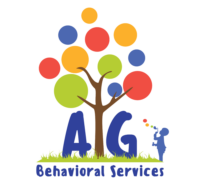Autism spectrum disorder (ASD), often known as autism, is a developmental disorder affecting social skills, communication, relationships, and self-regulation. Recognized mainly in early childhood, numerous studies highlight early intervention’s crucial role in enhancing the quality of life for individuals with autism. This article delves into recent statistics and the impact of early intervention for autistic children.
Incidence and Early Diagnosis of Autism
Recent data from the Centers for Disease Control and Prevention (CDC) in 2022 indicates that about 1 in 54 children in the U.S. are diagnosed with autism, showing an uptick from earlier figures. Notably, autism is more prevalent in boys, being 4 times more common than in girls. Timely diagnosis and intervention are vital for improving the developmental and life outcomes for these children.
A 2022 Journal of Autism and Developmental Disorders study found that children receiving early intervention showed marked improvements in IQ, language, and adaptive behavior over those who received later intervention. Consequently, the American Academy of Pediatrics advises autism-specific screenings at 18 and 24 months for all children, regardless of ASD symptoms.
Significance of Early Diagnosis
Autism is often diagnosable by age 2, but many children are not diagnosed until they’re over 4. Early diagnosis is imperative as it allows for intervention services that significantly enhance a child’s developmental progress.
A 2022 Journal of Autism and Developmental Disorders study found that children receiving early intervention showed marked improvements in IQ, language, and adaptive behavior over those who received later intervention. Consequently, the American Academy of Pediatrics advises autism-specific screenings at 18 and 24 months for all children, regardless of ASD symptoms.
Benefits of Early Intervention Programs
Early intervention programs for ASD aim to alleviate the disorder’s effects and provide children with essential skills for interacting with their environment. A 2023 study in the Journal of Early Intervention indicated that children in high-quality early intervention programs exhibited better social skills, cognitive function, and independence than those without early intervention.
These services include therapies like speech, physical, and occupational therapy, along with applied behavior analysis (ABA). A 2021 study in Behavior Analysis in Practice showed that early ABA intervention led to significantly better outcomes across various functioning areas compared to later-start therapy.
Recent Posts
- Latest Autism Research and News Highlights
- Historic $50 Million Gift Spurs Launch of the Lurie Autism Institute at CHOP and Penn Medicine
- Daily Mindfulness Practice Reduces Anxiety for Autistic Adults
- Navigating Autism in New Jersey: Challenges for Parents Raising Children on the Spectrum
- Preparing for Summer Transitions with ABA: Strategies to Maintain Progress
Socio-Economic Benefits of Early Intervention
Besides aiding the child, early intervention has considerable socio-economic benefits. A 2021 JAMA Pediatrics study revealed that the lifetime cost for someone with autism ranges from $1.4 to $2.4 million, including healthcare, education, ASD-specific therapy, family services, and caregiver time. Early intervention can drastically cut these costs by increasing the child’s independence and reducing the need for intensive future support.
Summary
In summary, research on autism emphasizes the importance of early detection and intervention for the developmental and independent progress of autistic children. These advancements not only improve outcomes for children with ASD but also have significant socio-economic benefits for families and society. Emphasizing early diagnosis and intervention is critical for helping every child with autism achieve their full potential.
AGBS provides ongoing care for children, adolescents, and young adults with autism to improve the quality of their lives. If you would like learn more about how AGBS can help please contact us here , or call 908-913-0443.





